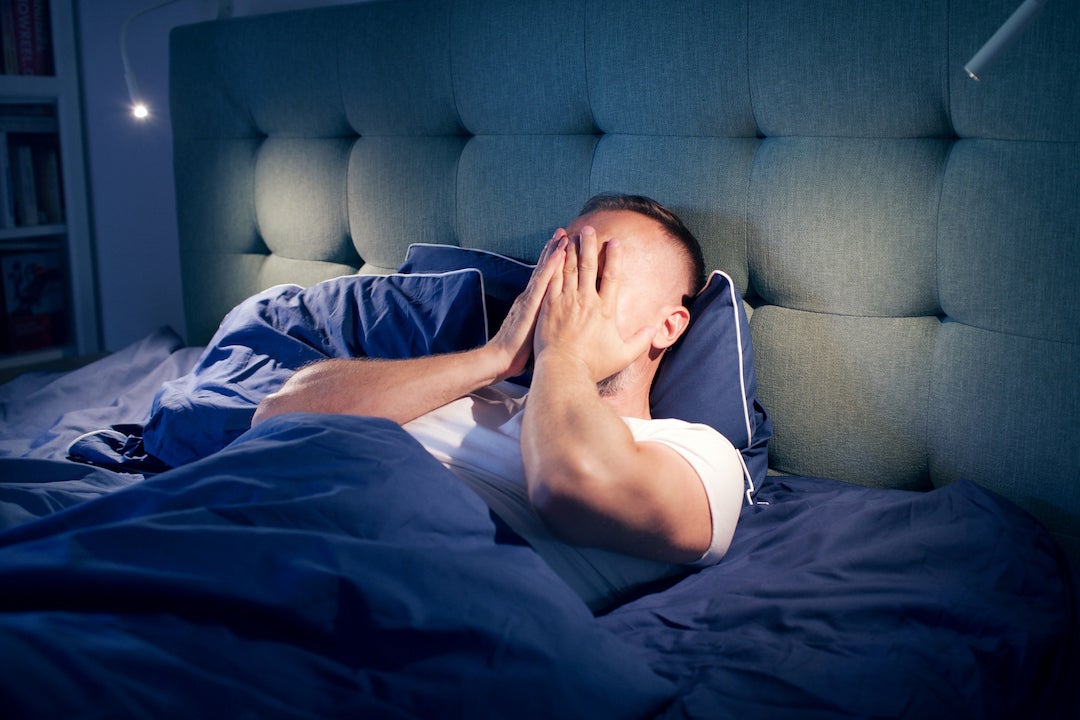Struggling to sleep? Scientists say insomnia doesn’t just affect your energy levels the next day – it can also impact your brain health, increasing the risk of dementia.
That’s according to a study that found those with chronic insomnia – trouble sleeping at least three days a week for three months or more – had a 40 per cent higher risk of developing mild cognitive impairment or dementia than those without insomnia.
The study, published in the journal Neurology, tracked a group of 2,750 adults with an average age of 70 for just over five years and found a lack of sleep was associated with brain changes on imaging scans.
“Insomnia doesn’t just affect how you feel the next day – it may also impact your brain health over time,” said study author Dr Diego Carvalho at the Mayo Clinic in Rochester, Minnesota, and a member of the American Academy of Neurology.
“We saw a faster decline in thinking skills and changes in the brain that suggest chronic insomnia could be an early warning sign or even a contributor to future cognitive problems.”

At the start of the study 440 people had been diagnosed with chronic insomnia.
Participants were asked to rate their sleep at the beginning of the study, highlighting whether they had been sleeping more or less than usual over the past two weeks.
Every year participants were invited back to the laboratory to complete memory and thinking tests.
Brain scans were also used to look for signs of Alzheimer’s disease – the most common form of dementia.
This included looking for white matter hyperintensities – areas where small vessel disease may have damaged brain tissue – and amyloid, a protein that sticks and forms plaques in the brain, eventually causing brain cells to die.

During the study, 14 per cent of the people with chronic insomnia developed mild cognitive impairment or dementia, compared to 10 per cent of those who did not have insomnia.
Study authors accounted for factors such as age, high blood pressure, use of sleep medications and a diagnosis of sleep apnea and found that people with insomnia were 40 per cent more likely to develop mild cognitive impairment or dementia.
Researchers split participants with insomnia into two groups: those getting less sleep than usual in the past two weeks; or those getting more sleep than usual in the past two weeks.
People who reported getting less sleep than usual were more likely to have lower cognitive test scores at the beginning of the study, and also had more white matter hyperintensities and amyloid plaques.
People who reported getting more sleep than usual, on the other hand, were more likely to have fewer white matter hyperintensities at the start of the study.
Some groups were especially vulnerable. Participants who carry the APOE ε4 gene – linked to higher Alzheimer’s risk – showed steeper declines in memory and thinking skills.
“Our results suggest that insomnia may affect the brain in different ways, involving not only amyloid plaques, but also small vessels supplying blood to the brain,” Dr Carvalho said.
“This reinforces the importance of treating chronic insomnia – not just to improve sleep quality but potentially to protect brain health as we age. Our results also add to a growing body of evidence that sleep isn’t just about rest – it’s also about brain resilience.”









